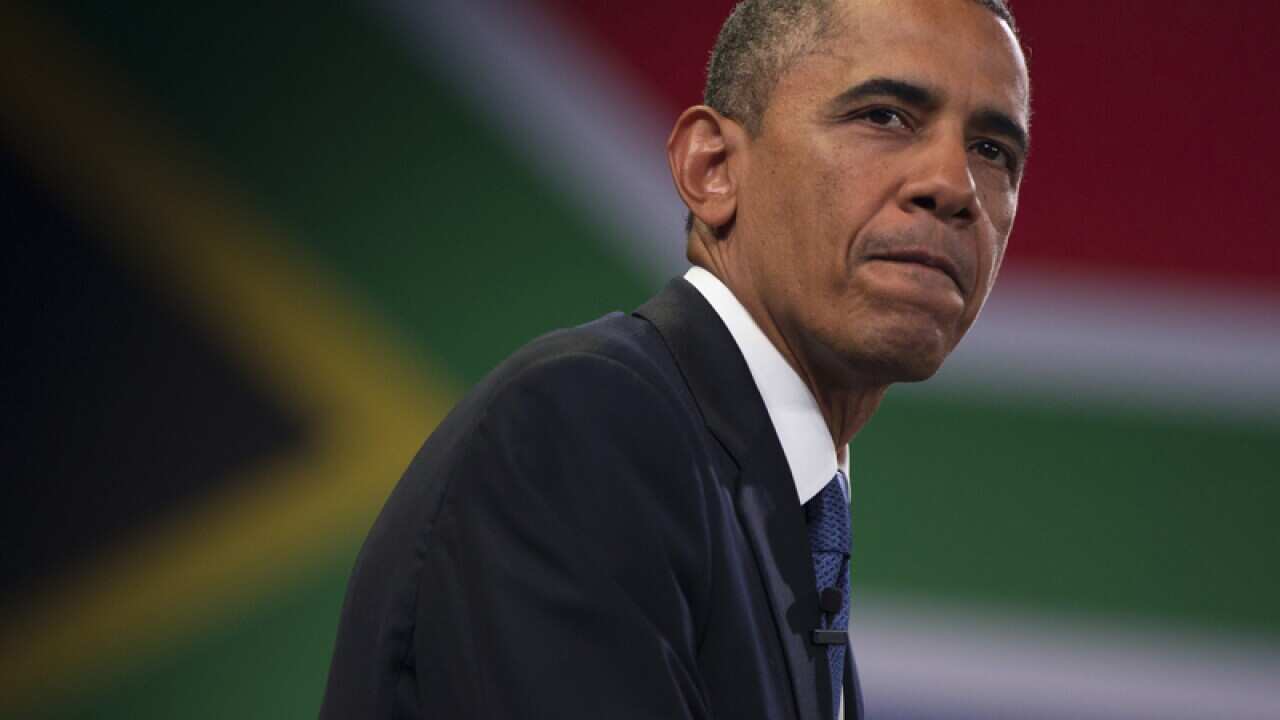The US leader will fly to Cape Town and then visit the jail on Robben Island, now preserved in searing tribute to the sacrifice and unbreakable strength of the anti-apartheid leader, who now lies critically ill in hospital.
"For me to be able to bring my daughters there and teach them the history of that place and this country ... that's a great privilege and a great honour," said Obama on Sunday, marvelling at a recent outpouring of love for the ailing icon.
Obama will also build the keynote speech of his three-nation Africa tour at the University of Cape Town around Mandela and will cite his unifying legacy of a blueprint for a new generation in emerging Africa.
Mandela's illness placed Obama in a tricky political spot, forcing him to balance his desire to push for a new economic relationship with Africa, with the need to properly honour his hero as the world braces for his death.
On Saturday Obama and his wife Michelle called Mandela's wife Graca Machel, and the president then privately visited several daughters and grandchildren of Mandela, to offer support and prayers.
But he decided against rolling up in his massive entourage at the Pretoria hospital where the 94-year-old Mandela lies, worried that he would disturb his peace.
"I expressed my hope that Madiba draws peace and comfort from the time that he is spending with loved ones," Obama said in a statement using the 94-year-old Mandela's clan name.
Machel said she drew "strength from the support" from the Obama family.
The example of Mandela, South Africa's first black president, drew Obama into politics for the first time in the 1970s, putting him on a path that would make his own piece of history as America's first black president.
Obama's warm welcome was not universal. Riot police fired rubber bullets and stun grenades at around 300 hundred anti-Obama protesters in the township of Soweto, once a flashpoint in the anti-apartheid struggle.
Many Soweto residents, however, see Obama, the son of a white American mother and a Kenyan father, as a "fellow African".
"To me, Madiba represents an older and perhaps more traditional generation of black leaders, while Obama represents the new generation," Tshepo Mofokeng, 43, told AFP.
"I'm sure he will be welcomed here as an African."
Not far from the protest, Obama held a town hall style meeting with 600 young African leaders with a video link up to young people in Nigeria, Uganda and Kenya.
Mandela, once branded a terrorist by the United States and Britain, was freed in 1990 and became president after the first fully democratic elections in 1994.
Share

